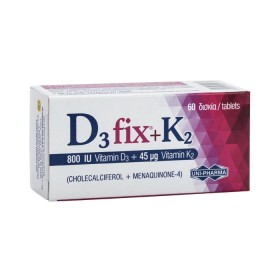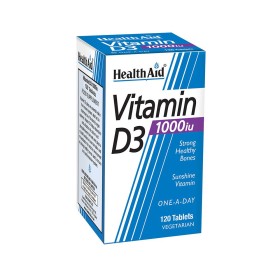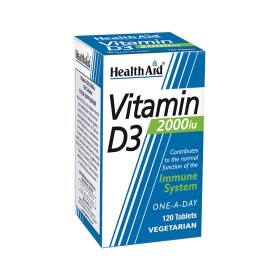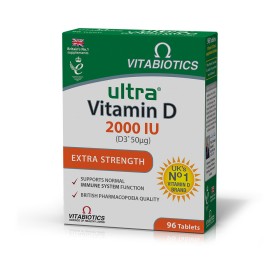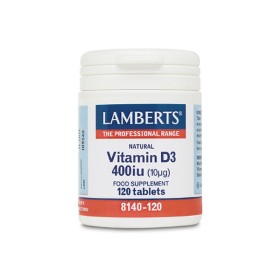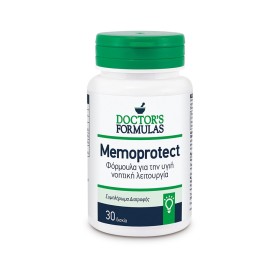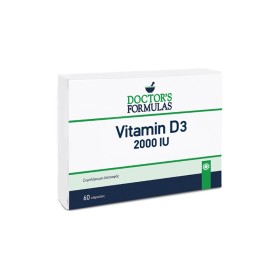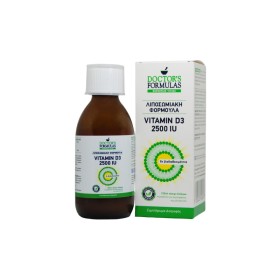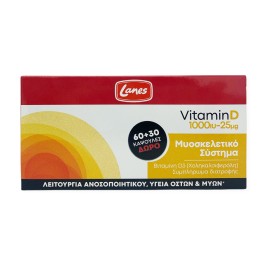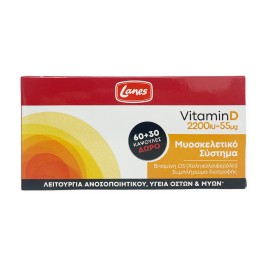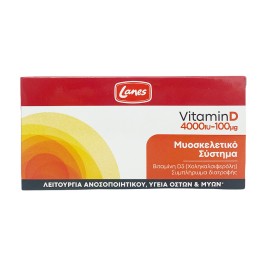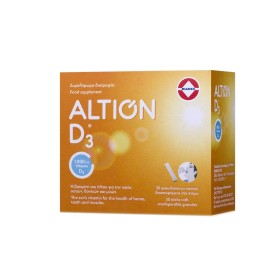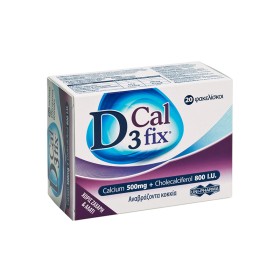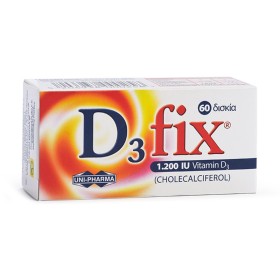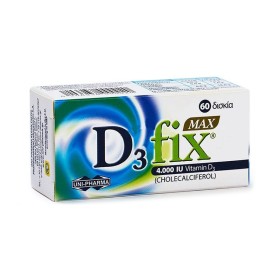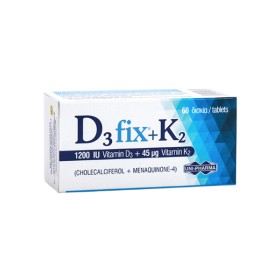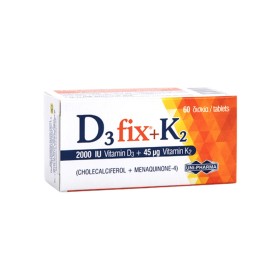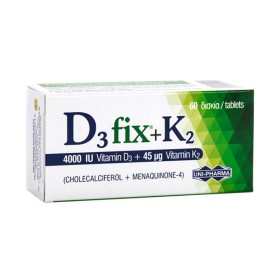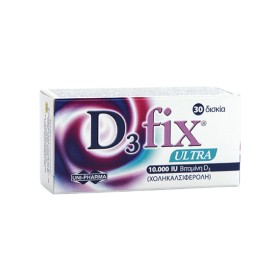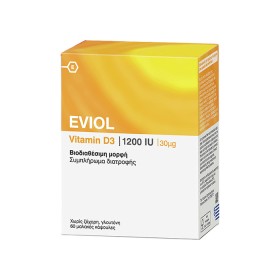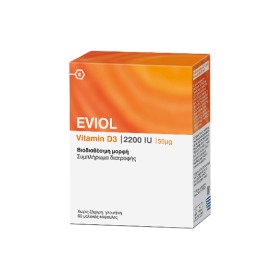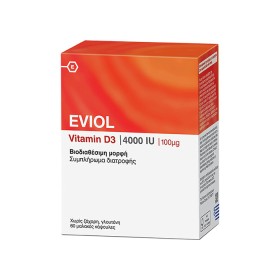Vitamin K2 is extremely important for bone strengthening and maintaining clean areas such as arteries and soft tissues from excess calcium. Vitamin K in combination with vitamin D significantly increases bone density compared to vitamin K alone. The new D3fix + K2 circulating forms are as follows: D3fix 800IU + 45mcg K2, D3fix 1200IU + 45mcg K2, D3fix 2000IU + 45mcg K2, D3fix 4000IU + 45mcg K2.
Vitamin D3 is produced by the photolytic action of ultraviolet radiation on the skin. Despite the fact that any organism can produce the quantity of Vitamin D3 it requires, modern lifestyle and insufficient exposure to solar radiation results in Vitamin D3 deficiency, the intake of which is mandatorily through nutrition, due to its very important role in maintaining good health.
Vitamin D3 has a significant role in maintaining calcium and phosphate homeostasis and consequently maintaining healthy bones and teeth. Additionally, Vitamin D3 participates in tissue metabolism and its presence in sufficient quantities is substantial for the differentiation of cells and the preservation of membrane functionality , as well as for the function of various organs such as the skin, the muscles, the pancreas, the nerves, the parathyroid gland and the immune system
Vitamin K is a fat-soluble vitamin. Vitamin K2 can be divided into two additional categories: MK-4 (menacinone-4) and MK-7 (menacinone-7). Nearly 80% of the population does not take enough vitamin K2 from their diet, a similar percentage of vitamin D deficiency. Taking vitamin D into our body leads to the creation of proteins that make their action vitamin K2 and help better transfer of calcium to the bones. If there is no K2 in our body, osteocalcin becomes inactive and calcium circulates freely in our blood.
Barcode: 5206938002375






